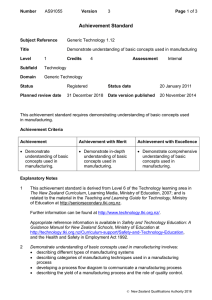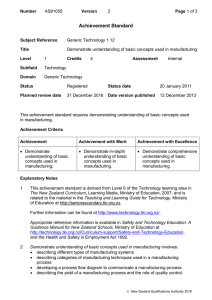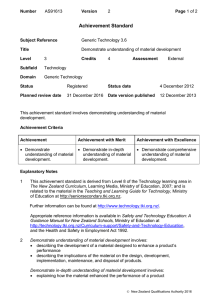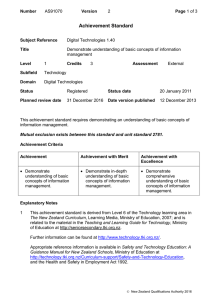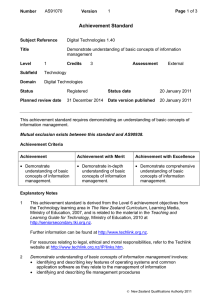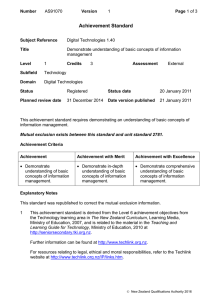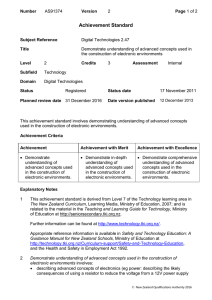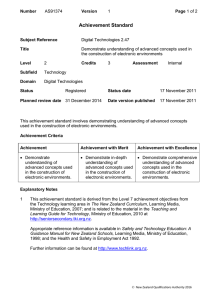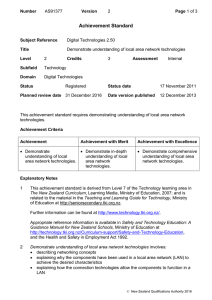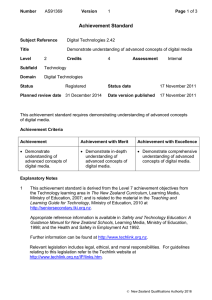Achievement Standard
advertisement
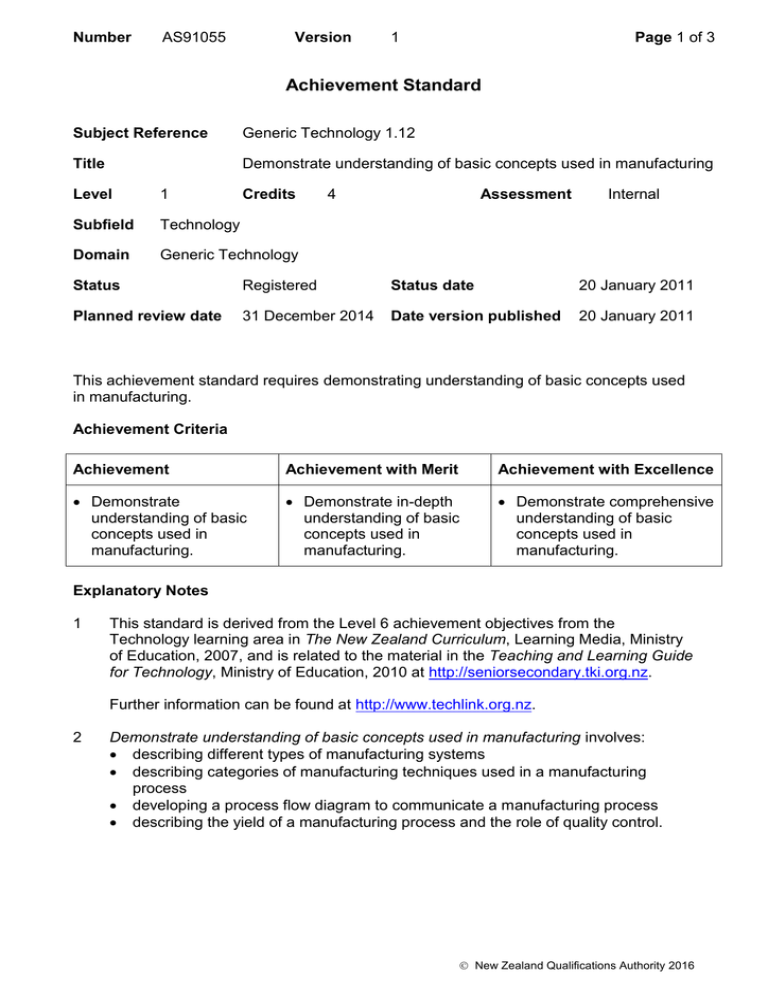
Number AS91055 Version 1 Page 1 of 3 Achievement Standard Subject Reference Generic Technology 1.12 Title Demonstrate understanding of basic concepts used in manufacturing Level 1 Credits Subfield Technology Domain Generic Technology 4 Assessment Internal Status Registered Status date 20 January 2011 Planned review date 31 December 2014 Date version published 20 January 2011 This achievement standard requires demonstrating understanding of basic concepts used in manufacturing. Achievement Criteria Achievement Achievement with Merit Achievement with Excellence Demonstrate understanding of basic concepts used in manufacturing. Demonstrate in-depth understanding of basic concepts used in manufacturing. Demonstrate comprehensive understanding of basic concepts used in manufacturing. Explanatory Notes 1 This standard is derived from the Level 6 achievement objectives from the Technology learning area in The New Zealand Curriculum, Learning Media, Ministry of Education, 2007, and is related to the material in the Teaching and Learning Guide for Technology, Ministry of Education, 2010 at http://seniorsecondary.tki.org.nz. Further information can be found at http://www.techlink.org.nz. 2 Demonstrate understanding of basic concepts used in manufacturing involves: describing different types of manufacturing systems describing categories of manufacturing techniques used in a manufacturing process developing a process flow diagram to communicate a manufacturing process describing the yield of a manufacturing process and the role of quality control. New Zealand Qualifications Authority 2016 Number AS91055 Version 1 Page 2 of 3 Demonstrate in-depth understanding of basic concepts used in manufacturing involves: explaining why particular types of manufacturing systems are used in specified contexts explaining key manufacturing techniques used in a manufacturing process explaining how yield is determined and how quality control is managed within a manufacturing process. Demonstrate comprehensive understanding of basic concepts used in manufacturing involves: discussing why the manufacturing techniques were used in a manufacturing process discussing how yield prediction and its determination, and quality control mechanisms, may be affected by social and environmental change. 3 Types of manufacturing systems include but are not limited to: one-off custom manufacturing of a unique single product batch, intermittent or short-run manufacturing – multiple copies of the same product or a single batch of a processed product continuous (often called ‘assembly line’) manufacture flexible manufacture and customisation. 4 The categories of manufacturing techniques may include but are not limited to – inspection, transport, storage, operation. 5 The nature of manufacturing may include but is not limited to – consideration of product need; resource availability; political, social and physical environments; advances in manufacturing systems and techniques. 6 Manufacturing processes are those undertaken to manufacture products that may include but are not limited to – milk powder, meat packing and freezing, carpet, urea, newsprint, oil, electronics, frozen fish fillets, moulded plastics, superphosphate, agricultural machinery, possum and merino yarn, boats, furniture, garments. 7 The contexts may be specified by the teacher or the student. If the student specifies the contexts then the teacher must ensure that they provide sufficient opportunity for the exploration of a range of manufacturing systems. 8 Conditions of Assessment related to this achievement standard can be found at http://www.tki.org.nz/e/community/ncea/conditions-assessment.php. New Zealand Qualifications Authority 2016 Number AS91055 Version 1 Page 3 of 3 Quality Assurance 1 Providers and Industry Training Organisations must be accredited by NZQA before they can register credits from assessment against achievement standards. 2 Accredited providers and Industry Training Organisations assessing against achievement standards must engage with the moderation system that applies to those achievement standards. Accreditation and Moderation Action Plan (AMAP) reference 0233 New Zealand Qualifications Authority 2016
